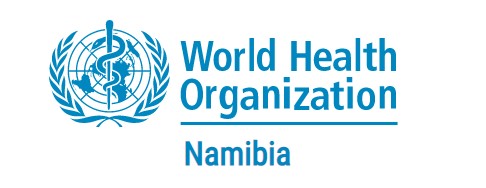The Regional Office for Africa (AFRO), WHO Geneva in collaboration with WHO Namibia and the Ministry of Health and Social Services conducted a training on Global Antimicrobial Resistance (AMR) and Use surveillance system (GLASS) and WHONET tool in Windhoek, for 12 selected member states. The training aimed to build capacity of Member States to establish and/or enhance national surveillance systems for AMR and generate, collect, report, and use quality data to inform decisions at the country, regional and global levels.
Speaking at the opening of the regional training on GLASS, Dr Mary Brantuo, WHO Namibia, Officer-in-Charge, referred to several initiatives conducted by WHO and partners to address AMR. She said that in 2015 the World Health Assembly adopted a Global Action Plan on AMR and later in the same year launched the GLASS to standardize AMR surveillance. Approximately 80% of member states in the WHO African Region registered for GLASS including Namibia. Globally 130 member states registered for GLASS.
Antimicrobial resistance (AMR) threatens the effective prevention and treatment of an ever-increasing range of infections caused by bacteria, parasites, viruses, and fungi. This is increasingly becoming a global public health concern and is ranked amongst the top 10 global public health threats.
In 2019, 4.95 million deaths were associated with drug-resistant bacterial infections with the most significant burden occurred in the sub-Saharan Africa Region, where 1.07 million people died because of bacterial resistance . The most recent 5th GLASS report (December 2022) revealed a global increased rate of AMR rates by more than 15% in 2020 compared with 2017 in pathogens causing bloodstream infections (Klebsiella pneumoniae and Acinetobacter spp.), calling for efforts to strengthen infection prevention and control measures in hospital settings.
Dr Brantuo noted the challenges by many countries for AMR surveillance capabilities and laboratory infrastructures and underscored the need for capacity development to generate, collect, report, and use quality AMR data using GLASS guidelines and WHONET tool, a free desktop Windows application developed by a WHO Collaborating Center for the management and analysis of microbiology laboratory data with a particular focus on antimicrobial resistance surveillance.
Speaking at the same occasion, Mr Ben Nangombe, Executive Director of the Ministry of Health Social Services said that the meeting represents more than a gathering of minds and expertise but is a testament of ‘unwavering commitment of our nations to address one of the most pressing global health challenges: the rise of antimicrobial resistance (AMR)’. He further said that ‘in an age where borders blur, diseases know no boundaries, and pathogens evolve at an alarming rate, collaboration and shared knowledge are our most potent weapons. Africa remains the continent most afflicted by infectious diseases and AMR can dramatically hamper treatment effectiveness and greatly amplify disease burden and its complications’.
He accentuated the threat posed by AMR that as societies advance so ‘too do the microbial adversaries we face’. Mr Nangombe stated that ‘infections that were once treatable now pose life-threatening challenges. The emergence of drug-resistant pathogens knows no discrimination, impacting not only human health but also animal health, agriculture, and the environment. If we do not act decisively, we risk sliding into a future where common infections become fatal, medical procedures become perilous, and healthcare systems strained under the burden of untreatable diseases.
The Namibia meeting had representation from 12 WHO Africa Region member states from Angola, Benin, Burundi, Cabo Verde, Chad, Eswatini, Gabon, The Gambia, Liberia, Namibia, Senegal, Sierra Leone.
Distributed by APO Group on behalf of World Health Organization (WHO) - Namibia.
Latest Stories
-
Maintain E-Levy to support Women’s Development Bank, SMEs – GUTA tells Mahama
17 minutes -
Nominations open for 2025 JoyNews Impact Makers: Celebrating ordinary people, making extraordinary impact
45 minutes -
Tanko Foundation rescues 3 nursing mothers detained over medical bills
50 minutes -
Cyber troopers: The ‘news’ handles spreading disinformation, hate speech on social media
53 minutes -
Russia hopeful of improved relations with Mahama’s administration – Dr John Aggrey
1 hour -
Ablekuma North: Nothing untoward happened, there is no illegality – Haruna Mohammed
2 hours -
Mahama can run Ghana with just 30 ministers – Prof. Avea Nsoh
2 hours -
Hearts midfielder Saani Mohammed joins Danish side AC Horsens
2 hours -
West Ham to appoint Potter after sacking Lopetegui
2 hours -
Ablekuma North: We won’t accept any ‘illegality’ coming from EC – NDC
2 hours -
I’m done with Ablekuma North, EC should find a new person – Returning officer
2 hours -
Ghana has the human resources to deal with energy crisis – Mahama
4 hours -
We will miss our former MP Joseph Cudjoe – Effia constituents
4 hours -
Urban Sports Festival: 2025 edition set for January 25 in Accra
4 hours -
Mahama to scrap import duty on vehicles & equipment for industrial and agricultural purposes in 1st 100 days
4 hours

